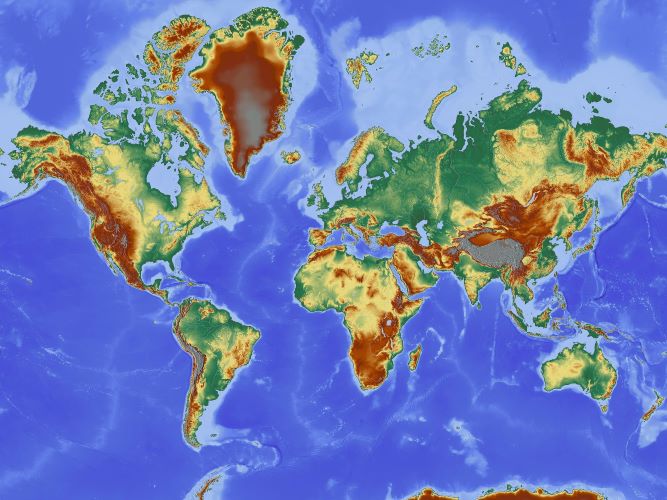The world is a big place, and that means a degree in international relations – one of the highest-paying master’s degrees – can be fairly broad. A wide variety of both geographical regions and themes fit under this umbrella of international relations. Students often choose to focus their education on one of these areas or themes while still completing enough core coursework in international relations more generally to put their specialized knowledge in context within the field of international affairs.
International Relations Concentrations by Region
Since there are too many countries, cultures and languages for one person to become an expert on in a lifetime – much less over the course of earning a master’s degree – students often choose a geographic region to study in greater detail. These areas are typical continents, like Asia, Africa and Europe, or major regions, like the Middle East and Latin America. Focusing on one region gives students the chance to gain a greater depth of knowledge pertaining to one area than they would otherwise get.
IMAGE SOURCE: Pixabay, public domain
Within these regional concentrations, students of international relations often have some choice in their coursework. In this way, they can decide how narrow they want their focus to be. For example, if you choose an international relations degree program with a concentration in Asia, the specific courses you take for your concentration are largely up to you. You could choose to focus the bulk of your coursework on China – taking classes on the economy, politics, history and foreign policy of the nation – or split your coursework between subject matter pertaining to China, Korea, Japan, India and Taiwan.
If you know that you want to live and work in China, perhaps as a diplomat or foreign affairs officer of the U.S., a curriculum with a narrower focus may be a better fit for you. However, if you would prefer to work with different countries and cultures throughout the continent of Asia, you might be better off gaining familiarity with aspects of multiple countries in that region.
If you opt not to focus on a specific region, you still need to think about the countries with which you are most interested in working when you choose a foreign language to master. Language proficiency requirements are common in international relations programs.
International Relations Concentrations by Topic
You might not know where in the world you will end up, but you do know that you have a passion for a particular topic or theme within international relations. Some of the topic areas you may opt to study are human rights related, while others focus on energy and the environment, economic affairs, security, technology, health and peacekeeping and conflict resolution. Studies in one of these areas tend to focus less on specific geographical regions – although they may include thematic coursework in a sampling of countries and continents – and more on different perspectives on and approaches to the topic.
Suppose you’re enthusiastic about the environment and saving the planet. You might find global energy and environmental policy a fitting area of international relations to study. While you might take some region-specific courses, such as a class that looks at the oil industry in the Middle East, more of your classes will look at the complexities of global and United States energy and environmental policy. Coursework in international environmental law, climate change, energy management, energy and environmental security, water management and sustainable energy may all be options you might consider.
Suppose you select a concentration in global gender policy. Aside from a core course in the foundations of international gender policy, you might study topics that range from feminist theory and ethics to reproductive healthcare, women’s entrepreneurial leadership and women in politics. Some courses you could potentially take are specific to certain cultures, regions or religions, such as studies in global Islamic feminism and gender and sexuality in East Asia. Many classes will instead dig into thematic areas related to gender, including how it pertains to problems such as poverty, violence, human trafficking and war.
You don’t have to choose a thematic area that is as focused as global energy and environment or global gender policy if you don’t want to. Broader concentrations in international relations also exist, including some in the topic of international affairs and development, international law, international security and international economic affairs.
Both narrow and broad areas of study within international relations have pros and cons. A narrower concentration gives you a greater depth of knowledge but may limit where and how you can use your degree, while a broad thematic concentration is versatile but may leave you with knowledge gaps. Ultimately, how you focus an education that falls under the umbrella of international relations depends on what you hope to do to your degree.
Some factors you should consider when planning your international relations curriculum and concentration areas are where you want to live after graduation, what your strengths are, and what are the areas in which you most want to help make a change.
Additional Resources
What Are the Basic Concepts of International Relations?
What Are the Objectives for International Relations?
Will a Degree in International Relations Be Helpful If I Want to Live Abroad?

